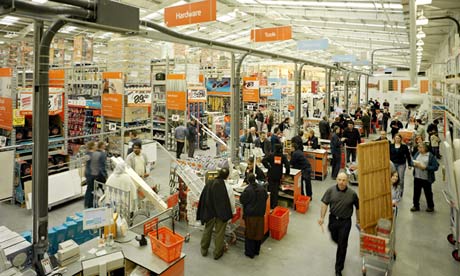Sustainable business should be bigger, more impactful and more influential.
Sustainability has historically been about reducing and minimising but progressive businesses are now aiming for big and bold and they aren't afraid to shout about it.
Reduce, minimise, small, less, neutral... Grow, big, achieve, more, positive.
The language of sustainability and the language of business couldn't be more different. It's the symptom of a deeper divide that many businesses struggle to overcome.
It's a problem of scale. The traditional argument for business sustainability is that companies need to minimise their impact or reduce their footprint; in short, to do less bad. Cut the carbon, reduce the waste, minimise the water use. It's all vitally important but couched in a terminology almost guaranteed to get it sidelined as "housekeeping". Sustainability and CSR have been about making business small. That's like asking a large powerful person to crouch down, talk quietly, and do less. They may try for a while, but eventually they'll just have to stretch.
Which is exactly what some progressive companies are now doing. Last night Kingfisher (the parent of DIY companies B&Q and Castorama) announced it will become Net Positive by 2050. They don't just want FSC wood, they want global net reforestation. Not only energy efficiency, but for all their consumers' homes to be zero carbon or net generators of energy. These aren't small commitments. In fact they are almost unimaginably ambitious, from standing where we are today.
I was in the Kingfisher boardroom the day they decided to go Net Positive. I've been in a few other boardrooms recently in which similar conversations are taking place. Something interesting is going on. Businesses are learning to talk about sustainability in their own terms, and those terms are big.
The lexicon of the boardroom isn't about doing less. The business mindset is about doing more. The language is big, hairy and audacious. In their 1994 book, Built to Last: Successful Habits of Visionary Companies, James Collins and Jerry Porras invented the concept of big, hairy and audacious goals or BHAGs. A truly audacious goal will take 10 to 30 years to meet. You believe it utterly inside the business, but realise that the outside world might take some convincing. You know a BHAG is going to take serious amounts of work and probably crush some old mindsets along the way. The best BHAGs are truly visionary, even if you're not quite sure how you'll get there.
That's why the CEO and board need to get involved. Transformative sustainability is risky. Kingfisher has spent almost a year selling the idea into the business, war-gaming the targets and working out how the hell to re-engineer processes and performance targets to face towards the new goal. I have no doubt a lower ambition would have been easier to embed. There would have been fewer hard questions, smoother sign-off, and a much gentler journey. But that would be medium, bald and coy.
The Unilever Sustainable Living Plan, GE's Ecomagination and Marks and Spencer's Plan A are all big hairy audacious goals, and now Kingfisher's Net Positive has joined them. These are ballsy, growth-focussed and competitive approaches to sustainability. The new cadre of campaigning CEO's have worked out that scary, difficult and transformative goals are hugely more motivating than easy, simple and small ones. The issues are familiar, but the framing sounds more Harvard Business Review than sustainability report.
It's a pity that so few businesses have cracked this way of thinking, talking or goal setting. Business in the Community's new 9 Billion Challenge could help. They are challenging their members to design, inspire, prod and engineer nine billion sustainable lifestyles. They acknowledge that needs more than incremental footprint improvements, and so are calling for fundamental business model transformations instead. Right now they are asking businesses what they think. Hopefully more will answer "hell yes, let's do it" than have so far.
And about time too. The challenges we face require some boldness. With a population of 9 billion people, climate change, rampant poverty and resource scarcity, a hugely ambitious mindset is appropriate. That doesn't mean near-term targets are irreverent; businesses need to have achievable measures to work towards. But those measures are simply milestones on the way to greatness. It's also not good enough to randomly pick a direction and develop a catchy slogan. The leaders carefully identify the material sustainability issues for their business, match their business skills to them, and set an ambitious goal to fix them for their business and for everyone else by default. Then they find the catchy slogan.
This is meta-sustainability. It's business strategy and environmental/social goals merging into new business models.
Don't ask business to be smaller. Ask them to be bigger, more impactful and more influential. Ask business to take sustainability to scale.
Welcome to the era of big sustainability.
Solitaire Townsend is co-founder, Futerra Sustainability Communications

No comments:
Post a Comment